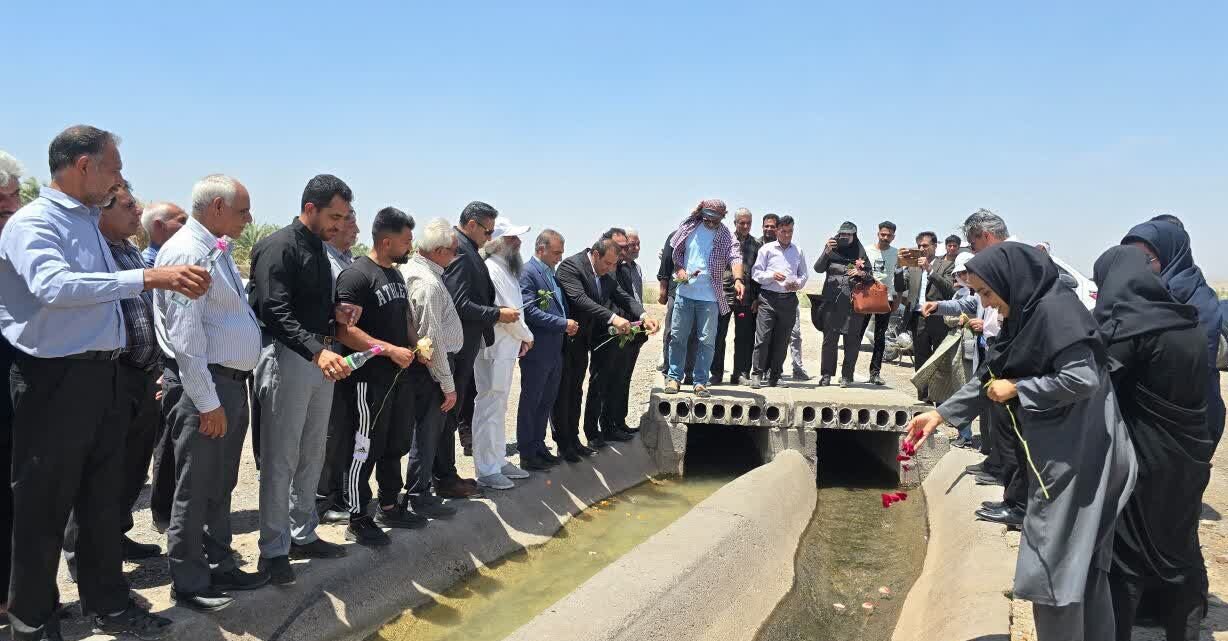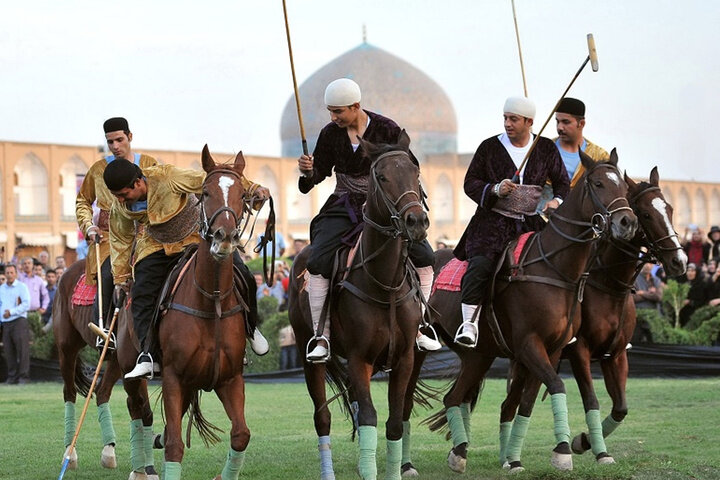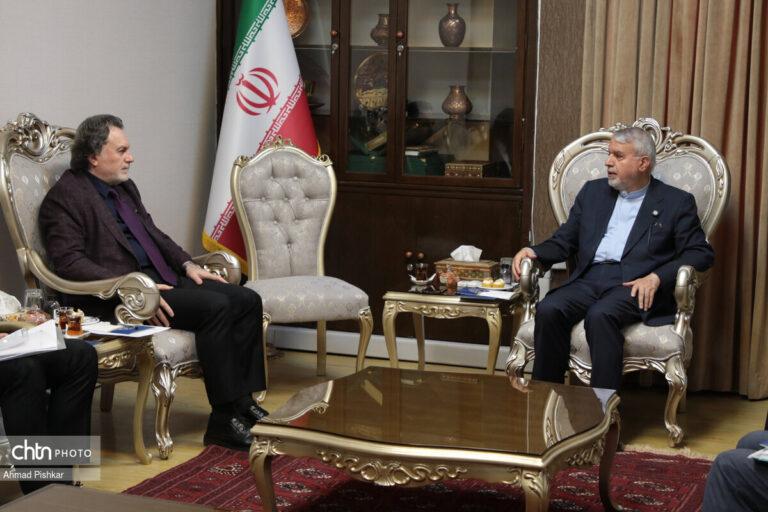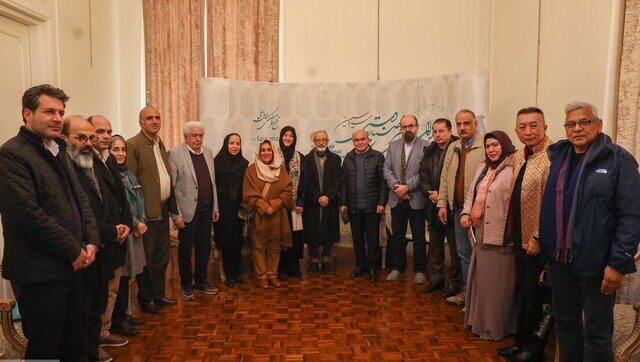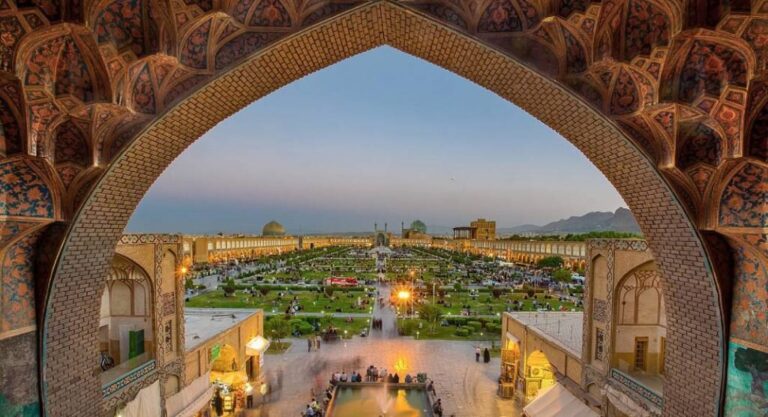Reviving Heritage: Locals Celebrate Ancient Qanats with Vibrant Flowers and Fragrant Rosewater
In southeastern Iran, the ancient tradition of honoring qanats—the ingenious subterranean aqueducts that have supported life in arid regions for centuries—has been revitalized after over fifty years of silence. The city of Bam recently celebrated a traditional ceremony that pays homage to these vital water systems, coinciding with the National Day of Qanats.
This special event, held on Wednesday, featured participants casting flowers and sprinkling rosewater over the flowing waters of the qanats. The National Day of Qanats falls 40 days after Nowruz, the Persian New Year, when qanats typically experience their peak water flow. This day not only marks the celebration but also signals the commencement of annual maintenance work on these essential water systems.
- Historical Significance: Traditionally, local well diggers, known as moqannis, would enter the qanats after performing ablution, carrying flowers to sprinkle rosewater in honor of this precious resource.
- Reverence for Nature: This act serves as a symbol of respect for nature and gratitude for the ancestors who engineered these vital water systems.
- Revival of Tradition: After fading from memory for over half a century, the practice was officially revived in 2022 to reconnect the community with its cultural heritage.
The revival of this ceremony aims to raise awareness about the importance of preserving qanats, a system that has garnered recognition from UNESCO for its historical and technological significance. Participants expressed their gratitude for the knowledge and traditions passed down through generations, celebrating a cultural legacy that has gained international acknowledgment.
In 2016, a selection of eleven qanats was inscribed as UNESCO World Heritage sites under the title of The Persian Qanat. These qanats exemplify a variety of geographic scopes, architectural designs, and cultural motives. Each subterranean tunnel tells a unique story and provides exceptional testimony to the cultural traditions and civilizations that have thrived in desert regions.
Typically, a qanat consists of an almost horizontal tunnel that collects water from an underground source, usually located in an alluvial fan. A mother well is sunk to the appropriate level of the aquifer to facilitate this process. This innovative water management system has been crucial for sustaining life in arid climates.
As UNESCO notes, “The qanats provide exceptional testimony to cultural traditions and civilizations in desert areas with an arid climate.” The recent ceremony in Bam highlights the community’s commitment to preserving this important aspect of their heritage and ensuring that future generations will continue to honor the qanats.
With the revival of this ceremony, the people of Bam are not only celebrating their ancestors but are also taking steps to ensure that the knowledge and practices associated with qanats are preserved. This initiative serves as a reminder of the ingenuity of past generations and the critical role water plays in sustaining life in arid regions.
As the ceremony concluded, participants reflected on the importance of maintaining a connection to their cultural roots. They expressed hope that this revival would encourage younger generations to learn about and appreciate the significance of qanats, fostering a sense of pride in their heritage.
In conclusion, the revival of the qanat ceremony in Bam represents a significant cultural renaissance, reminding us of the importance of water management systems that have supported civilizations for centuries. As the community comes together to honor their ancestors and the ingenious engineering of qanats, they are also paving the way for future generations to embrace and sustain this vital aspect of their heritage.
As the world continues to face challenges related to water scarcity and climate change, the lessons learned from the qanat system may hold valuable insights for contemporary water management practices. By understanding and preserving these ancient traditions, we can foster a deeper appreciation for the resources that sustain us and the cultural heritage that shapes our identities.
The people of Bam are leading the way in this important endeavor, ensuring that the wisdom of the past will not be forgotten and that the qanats continue to flow for generations to come.
